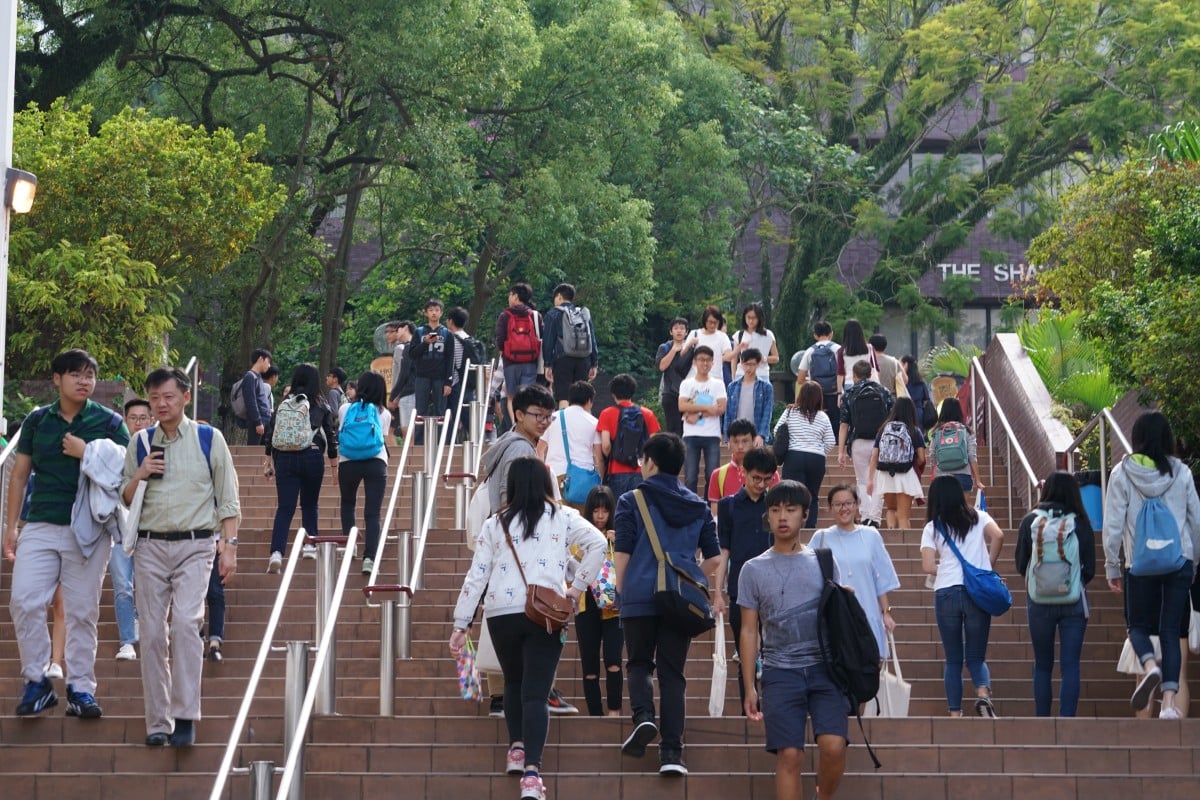
- Christine Choi says the ‘very pragmatic approach’ will ensure it will take around five years to reach 40 per cent target for non-local students
- A rise in tuition seems unlikely before the 2025-26 academic year at the earliest
 Hong Kong’s education chief vows university fee increases will be gradual and take students’ finances into account. Photo: Shutterstock
Hong Kong’s education chief vows university fee increases will be gradual and take students’ finances into account. Photo: Shutterstock Hong Kong’s education minister has pledged that planned increases in university tuition fees will be carried out gradually, taking into account the financial burden on students.
Secretary for Education Christine Choi Yuk-lin said the government would adopt a “very pragmatic” approach when phasing in the rise in bachelor’s degree fees at the city’s eight publicly funded universities.
“We will not aggressively increase the fees in one go,” she told the SCMP in a wide-ranging interview. “We will consider Hong Kong’s economic situation and the affordability for families and the young. It should be done gradually for them to afford it.”
Undergraduates at the eight universities currently pay HK$42,100 (US$5,380) annually, an amount that has been frozen for 27 years. According to the University Grants Committee, which allocates funding to the universities, the cost recovery rate slipped from 18 per cent in the 2012-13 financial year to 13.3 per cent in 2022-23.
But a rise in fees appears unlikely to occur before the 2025-26 academic year at the earliest.
Choi also said a new target for admitting more non-locals at public universities might take four to five years to achieve.
The government announced last year that the non-local quota would be doubled to 40 per cent of subsidised undergraduate student places starting this September.
“Universities will not use up the quota in a year for sure,” Choi said. “If they do that, Year One will have a sudden student enrolment expansion. “Instead, it will be a gradual process as the institutions themselves also need to hire extra manpower and maintain quality.”
Non-local students pay fees of between HK$140,000 and HK$171,000 a year.
Responding to criticism over the number of mainland Chinese students dwarfing others within the non-local student population, Choi said having additional joint programmes with overseas institutions could help Hong Kong attract a more diverse group of undergraduates.
But she noted that it was also common for mainland students to dominate the international intake at universities in Western countries.
The SCMP reported earlier that the number of mainland students taking undergraduate courses at Hong Kong’s public universities had soared past 10,000 for the first time and now made up about 70 per cent of all non-locals.
40% of Hong Kong teachers deregistered last year were due to sexual crimes
Choi said more joint programmes with foreign universities might help, as they would allow students to spend two years in the city and two years at an institution overseas.
“Currently, there are some joint programmes in a few universities. I think they could offer more to attract overseas students,” she said.
Choi also addressed concerns over the shrinking student enrolment in public schools, saying the government had no plan to take in non-Hongkongers other than those born in the city or who arrived with their parents under various talent schemes.
“We are not aiming to turn our primary schools into commodities,” she said. “Once we open up, all non-local students will be from the mainland, is that our aim?”
Choi said she did not think that allowing smaller class sizes would solve falling enrolments either, saying that having “too few students in one class is not good for their social development”.
During the interview, Choi also reported the effectiveness of various programmes taking students on trips to the mainland.
University eyes launch of Hong Kong’s third medical school by mid-2027
She said participants’ national identity were enhanced, with some young ones having the consciousness to stand up and sing the national anthem when the national flag was raised.
Choi said schools should not feel overwhelmed by the various national education programmes if they had deployed their staff well.